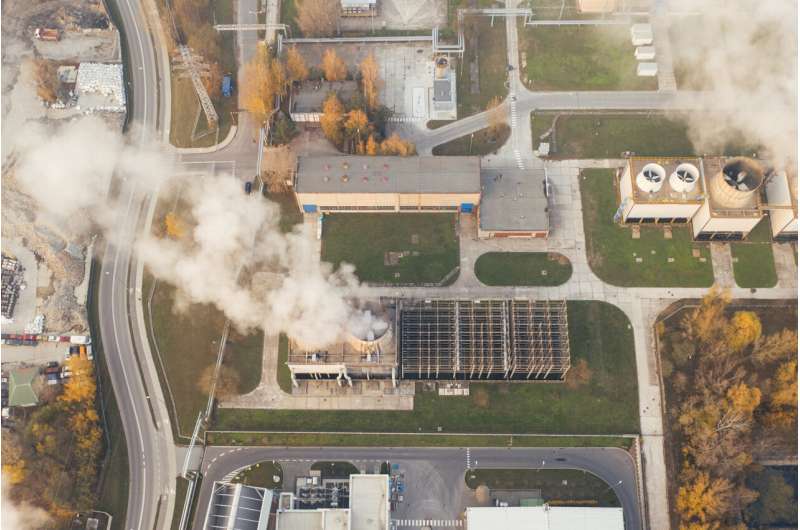Credit: Marcin Jozwiak from Pexels
Despite the fact that poorer people generally have lower emissions, taxes on the carbon dioxide (CO₂) our activities emit tend to affect people on low incomes more than richer people. Having less money means you can ill afford a switch to an untaxed alternative, like an electric car, or pay for carbon-saving measures like home insulation. You are also more likely to struggle to use less of an essential good like petrol or gas for heating, even if the price goes up.
Carbon taxes on energy that people use in their homes—for heating, cooking or watching TV—charge consumers for the emissions per kilowatt-hour (kWh) of electricity, gas or oil used. Economists would say that these kinds of carbon taxes are regressive, because using energy to heat and power your home is a necessity and poorer people will use a much higher share of their income to pay for these things—and the taxes—than richer people.
While total emissions have been falling in several rich countries over the last few years, emissions from cars and other means of transport are growing. The rise in air travel emissions has been especially rapid: a roughly sevenfold increase between 1960 and 2018 globally.
What's more, the fuels for heating and powering homes or driving cars are taxed, but the fuel airlines use is exempt due to an international agreement from 1944.
And although Europeans generally disapprove of carbon taxes, our study has revealed one type which could prove popular. In the first analysis of its kind to consider the effect on different income bands, we found that carbon taxes on air travel—what we describe as luxury emissions—nearly always affect the rich more.
Tax burdens from air travel
Our research examined how the burden from four different taxes on air travel would fall across income groups in the U.K. It shows that all of these taxes are progressive: they burden richer people more than poorer people as a proportion of income. This is because people on higher incomes are much more likely to fly, and fly more often.
Air travel taxes that apply to passengers could be levied on the emissions of each passenger per flight. People could also be taxed according to the distance they travel, or their seat class. An airplane's economy class occupies the least space per person, while business- and first-class passengers take up more room and so are responsible for more emissions than the average passenger.
A person could also be taxed for the number of flights they take. A frequent flyer levy would exempt the first return flight a person takes in a year, but would tax subsequent flights at an increasing rate. We found that taxes that take both flight emissions and the number of flights per passenger into account distribute the tax burden fairest.
The reason for this is that frequent air travel (all flights after the first return flight) is even more unequally distributed in society: the top 10% of emitters are responsible for 60.8% of flight emissions but for 83.7% of emissions from frequent flights.
Who else except the wealthy is likely to be affected by taxes on air travel? We found that, in the U.K., university graduates, employed people, young and middle-aged adults, residents of London, as well as first- and second-generation migrants are also more likely to fly than their counterparts, regardless of income.
Our results showed that recent migrants with friends and family abroad are relatively likely to fly often, even when on a low income. So allowances or extra support for recent migrants could make the design of such taxes fairer.
Overall, taxes on air travel are far more socially just than taxes on necessities such as home energy use and could curb luxury emissions in a way that nurtures broad support for more sweeping decarbonization measures such as those designed to limit car travel, like expanding bus and cycling lanes.
So why do politicians and others claim, as former U.K. treasury minster Robert Jenrick did in 2019, that air travel taxes disproportionately hit the poor? It's possible that they underestimate how little people in low-income groups actually fly, perhaps due to their typically middle- and upper-class backgrounds.
A less charitable interpretation is that they have ulterior motives for opposing such taxes. Social scientists claim that exaggerating or misrepresenting the social justice consequences of environmental policy is one of the most common arguments used to stall vital action on climate change.
Provided by The Conversation
This article is republished from The Conversation under a Creative Commons license. Read the original article.![]()
























